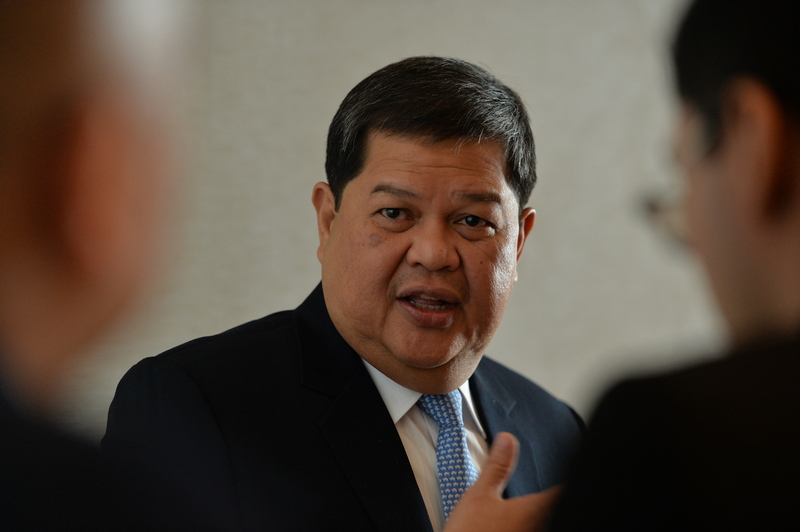
BSP Gov. Nestor Espenilla Jr.
The Philippines will continue to enjoy an extended period of relatively low borrowing costs — for now — after the central bank on Thursday decided to keep its key interest rate unchanged, despite rising prices of goods and services across the economy over the last few months.
At its meeting, the Bangko Sentral ng Pilipinas’ Monetary Board decided to maintain its overnight borrowing rate steady at 3 percent. The corresponding interest rates on the overnight lending and deposit facilities were also kept unchanged.
At the same time, however, BSP Gov. Nestor Espenilla Jr. said that since “inflation expectations have started to rise” it will therefore “need to be monitored closely in the coming months.”
“Economic growth remains solid enough to absorb some policy tightening if warranted,” he said, suggesting that the central bank may hike interest rates if inflation continues to rise in the coming months.
There has been growing clamor among bankers and economists in recent weeks for the central bank to hike its key interest rate — on which wholesale and retail borrowing costs and interest yields are based — in response to the inflation rate that caught BSP’s planner’s flat footed over the last two months.
Espenilla said Thursday’s Monetary Board’s decision is based on its assessment that, while recent inflation show an elevated path in 2018, the latest baseline forecasts continue to show inflation remaining within the inflation target in 2018 and moderating further in 2019.
“The Monetary Board also considered that prospects for domestic activity continue to be firm on the back of robust domestic demand, strong growth in credit and liquidity, and a sustained recovery in global economic growth,” he said.
At the same time, the Monetary Board observed that the risks to the inflation outlook “remain weighted toward the upside” owing mainly to price pressures emanating from pending petitions for adjustments in minimum wages and transportation fares.
“Nevertheless, non-monetary measures such as institutional arrangements in setting transportation fares and minimum wages, unconditional cash transfers, as well as transport subsidies are expected to help mitigate these inflationary impulses,” the BSP chief said. “In addition, the proposed reforms in the rice industry could also help temper price pressures.”
Given these considerations, the Monetary Board reiterated that it remained watchful against any signs of second-round effects and inflation becoming broader based.
“The Monetary Board stands firm in its intent to take immediate and appropriate measures to ensure that the monetary policy stance continues to support the BSP’s price and financial stability objectives,” Espenilla said.